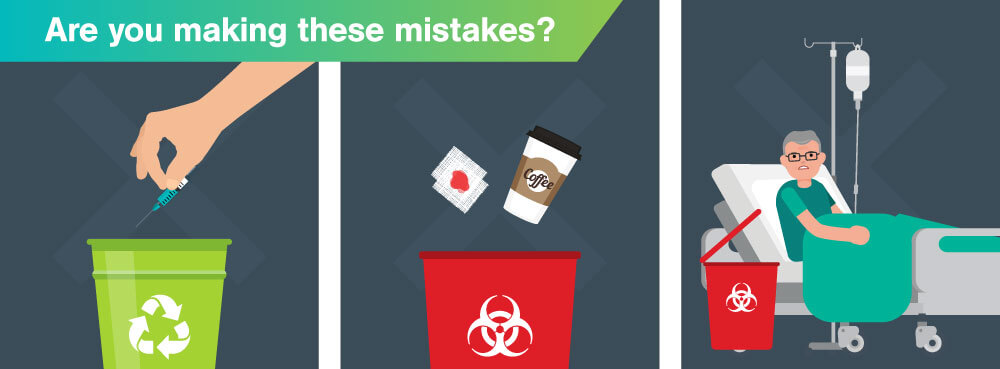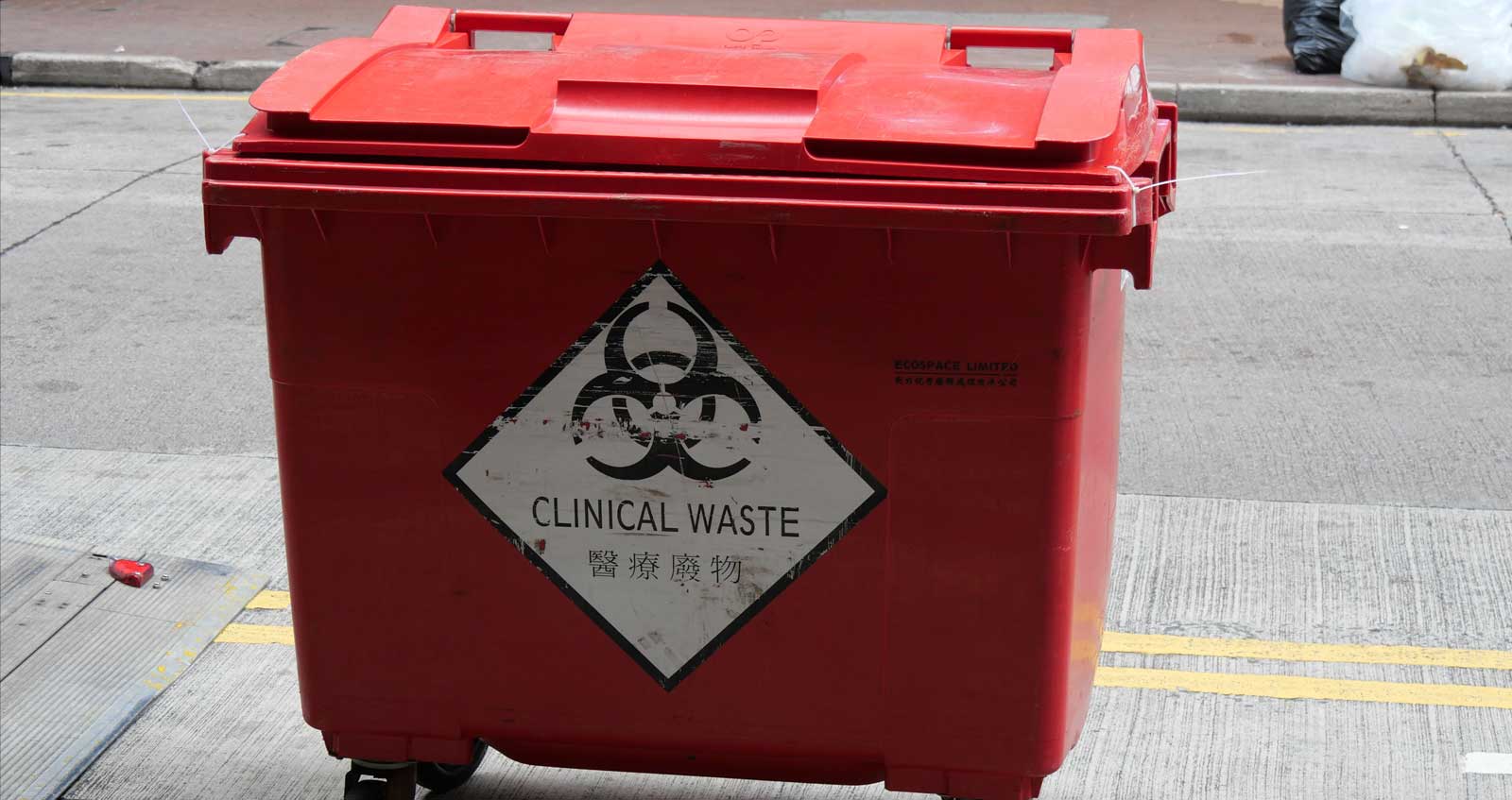Navigating Medical Garbage Disposal: Crucial Providers for Healthcare Facilities
In the elaborate landscape of healthcare operations, the management of medical waste is a vital element that requires careful interest. Health care centers, whether huge hospitals or little centers, are entrusted with the obligation of handling, dealing with, and throwing away a wide range of clinical waste streams. The intricacies associated with navigating via the regulatory needs, ensuring correct waste partition, and carrying out risk-free collection and transportation processes are critical. Understanding the vital services that sustain medical garbage disposal is not simply an issue of compliance however likewise a fundamental component in guarding public wellness and environmental well-being. The details of this procedure are vital for medical care centers, and the experience offered in this realm plays a pivotal function in maintaining the stability of healthcare systems.
Regulatory Compliance Assistance
For healthcare centers, guaranteeing regulatory compliance assistance is crucial to keep correct handling and disposal of clinical waste. By partnering with regulatory conformity specialists, medical care centers can stay current on progressing guidelines, alleviate dangers associated with incorrect waste disposal, and inevitably contribute to a safer and extra sustainable setting for all.
Waste Partition Support

Medical care centers must offer clear standards and training to team on just how to segregate waste efficiently. This consists of dividing basic waste from hazardous materials such as sharps, contagious waste, drugs, and chemical waste. Color-coded containers, tags, and signs are commonly utilized to help in waste partition techniques. Normal audits and surveillance of waste segregation processes are important to recognize any issues and make required enhancements.
Collection and Transportation Services

Correct collection and transport solutions are vital parts of the medical waste disposal process in medical care centers. These solutions ensure that unsafe materials are handled securely and in compliance with laws to secure both the environment and public wellness. Health care centers rely upon specialized waste management firms to supply efficient collection and transport services customized to their demands.
Clinical waste collection involves segregating different kinds of waste at the factor of generation, using color-coded bins or bags to identify in between general, harmful, pharmaceutical, and various other waste streams. As soon as collected, the waste is carried in committed lorries equipped to handle dangerous materials safely.
Treatment and Disposal Solutions
In the realm of clinical waste disposal for medical care go to these guys centers, after the important stage of collection and transportation services, the focus shifts towards executing effective treatment and disposal remedies. Therapy services typically involve procedures such as autoclaving, which find out utilizes heavy steam under pressure to decontaminate the waste.
Disposal options encompass the final action in the clinical waste monitoring process. Reusing and resource recovery are also getting grip as sustainable disposal options for particular types of medical waste products.
Effective treatment and disposal services are paramount in making sure conformity with laws and safeguarding public health and the environment. Healthcare facilities should very carefully review and choose appropriate approaches that straighten with their waste monitoring objectives and sustainability campaigns.
Team Training and Education And Learning

To successfully handle medical garbage disposal in medical care centers, detailed staff training and education play a vital duty in ensuring adherence to governing demands and preserving a risk-free atmosphere. Appropriate training equips personnel with the knowledge and abilities needed to manage different sorts of clinical waste, segregate them properly, and package them securely for disposal. By enlightening workers on the risks linked with incorrect handling of medical waste, centers can decrease the likelihood of crashes, contamination, and regulative offenses.

Final Thought
To conclude, healthcare facilities rely upon crucial medical garbage disposal solutions to ensure regulatory compliance, proper waste segregation, safe collection and transport, efficient therapy and disposal, as well as personnel training and education. These solutions play an essential function in keeping the wellness and safety and security of both medical care employees and the public, highlighting the significance of proper management of clinical waste in medical care settings.
For healthcare facilities, guaranteeing regulatory compliance assistance is essential to preserve proper handling and disposal of clinical waste. Waste partition includes categorizing various kinds of clinical waste to make sure ideal handling, treatment, and disposal. This includes separating basic waste from unsafe products such as sharps, infectious waste, drugs, and chemical waste.Medical waste collection involves setting apart various types of waste at the factor of generation, making use of color-coded containers or bags to distinguish in between general, hazardous, pharmaceutical, and other waste streams.In the realm of clinical waste disposal for healthcare centers, after the vital stage of collection and transportation solutions, the focus shifts in the direction of carrying out effective therapy and disposal options.